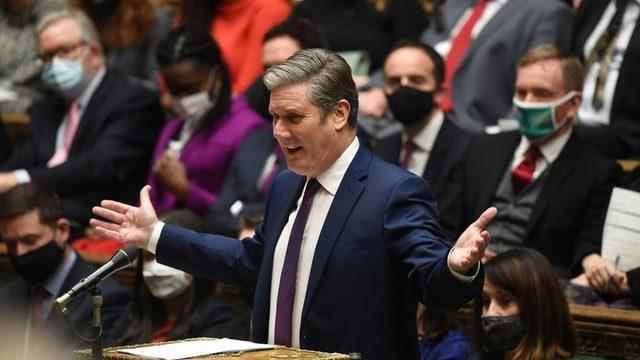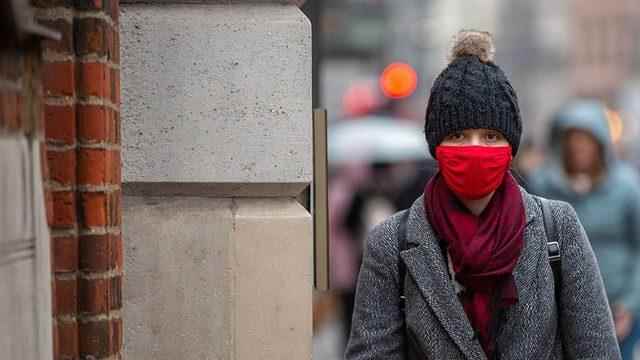The UK Parliament will vote tomorrow on new measures that the government has decided to declare against the rapidly spreading coronavirus variant Omicron. There is rebellion in the ruling Conservative Party before the vote.
It is thought that 60 MPs from the Conservative Party may oppose the measures. But the measures are expected to be approved in Parliament, with the support of the main opposition Labor Party.
Sources within the government say there will be three separate votes in the House of Commons for legislation on transitioning to more stringent measures, known as “Plan B” for short.
First of all, the issue of requesting a Covid certificate, that is, a vaccine or negative test certificate, will be voted for entry to some crowded closed places such as nightclubs. Some Conservative Party lawmakers object to this measure.
Prior to the vote, Prime Minister Boris Johnson called on his party’s lawmakers to say that he did not have the luxury of not taking the Omicron threat seriously.
“I hope my friends in Parliament will see that the measures taken are balanced and proportionate (to the threat),” Johnson said.
According to the BBC’s estimation, the number of Conservative MPs who said they would object to the regulation, especially regarding the implementation of Covid certificates, is around 60.
If lawmakers maintain their stance in tomorrow’s vote, we could witness Prime Minister Boris Johnson the biggest uprising in his party’s ranks in parliament.
This is why it was considered to vote separately on the other elements of the package of measures.
New measures may also come
There will probably be a separate vote on the mask requirement.
Another vote could be on a regulation that allows those in contact with a Covid-positive person to be exempt from self-quarantine if they test negative every day.
In addition, this week, a regulation that makes vaccination compulsory for those working on the front lines of health services in England is expected to be approved.
According to the information obtained by the BBC, the Labor Party will support the government in the mandatory vaccination of health workers, although it has objected to this before.
Labor Party leader Keir Starmer opposed the idea in October, but changed his stance on the issue after hearing from members of the Science Board.
This arrangement may also be submitted to the House of Commons.
On the other hand, the government’s “Plan B” has not been voted yet, but it is already said that other measures may be taken as the Omicron cases increase.

Measures voted in Parliament will apply in the UK within the UK. Scotland, Northern Ireland and Wales self-governments set their own Covid measures. But these measures often run in parallel, with some differences.
Another 633 new cases of Omicron were announced on Saturday, but the actual number is estimated to be much higher. In total, the number of cases in the last day in the whole of the United Kingdom is 54 thousand 73.
Meanwhile, according to a study by the London School of Hygiene and Tropical Diseases, the UK will face a massive Omicron wave in mid-January if it doesn’t go beyond the “plan B” measures announced so far.
According to the research, in this case, between 25 thousand and 75 thousand people may die from Covid from now until April.
The government is uncomfortable with the Labor Party’s need for vote.
Analysis by BBC Political Correspondent Chris Mason
It is necessary to distinguish between the consequences of Tuesday’s vote in the House of Commons on the spread of Omicron from the consequences it will have on politics.
According to the information we received from the parliamentary backstage, the “Plan B” proposed for England will be voted on in three separate proposals. In addition, the proposal to impose a vaccination obligation on the frontline personnel of the Health Services will also be submitted for approval.
Let’s say the obvious result from the beginning: It is expected that all of them will pass with the support of the Labor Party.
Three of the four expected proposals will have few objections anyway. But the main rebellion is against the regulation called Covid certificate.
About 60 Conservative lawmakers oppose the idea.
A regulation opposed by this large number of ruling party deputies is enough to defeat the government, even if it has a solid majority in the parliament.
But with the support of the Labor Party, the regulation is likely to pass.
However, governments hate to rely on opposition when passing their proposals in parliament, because that seems like a weakness.
